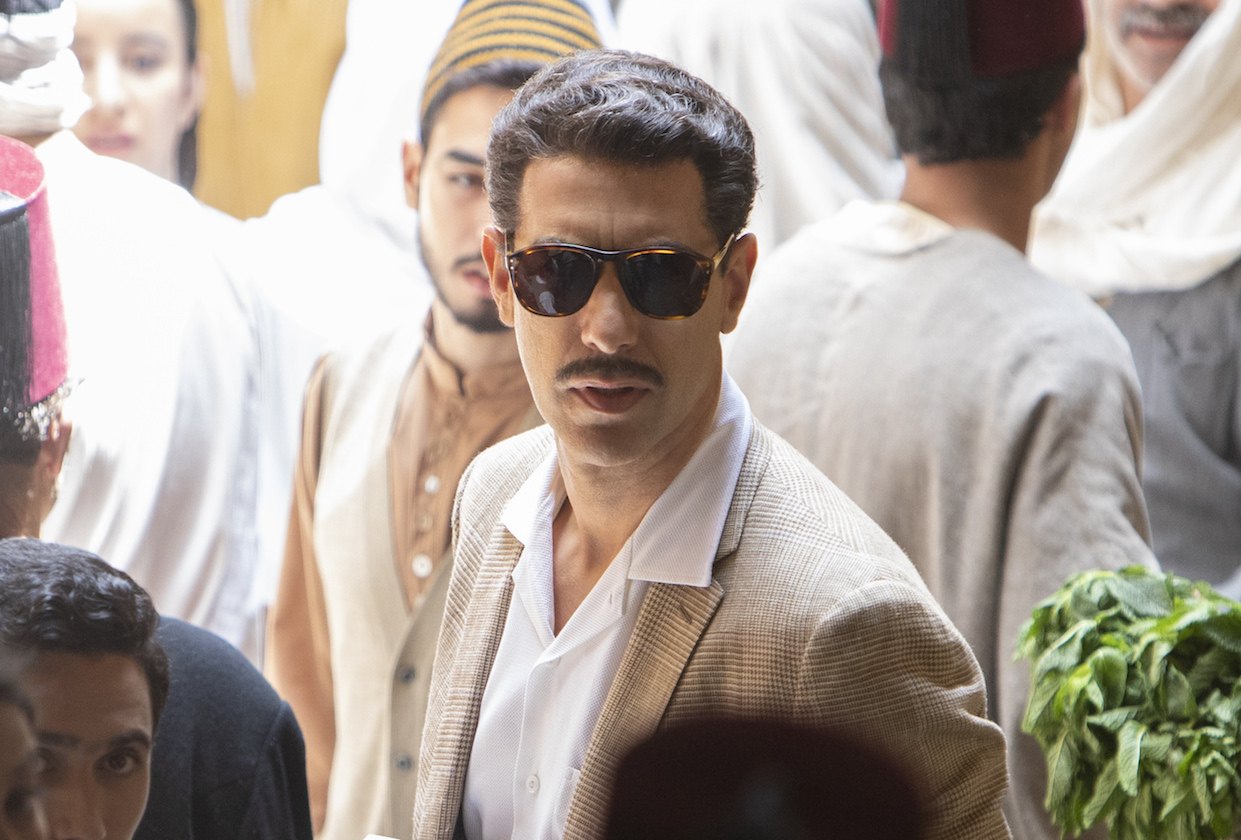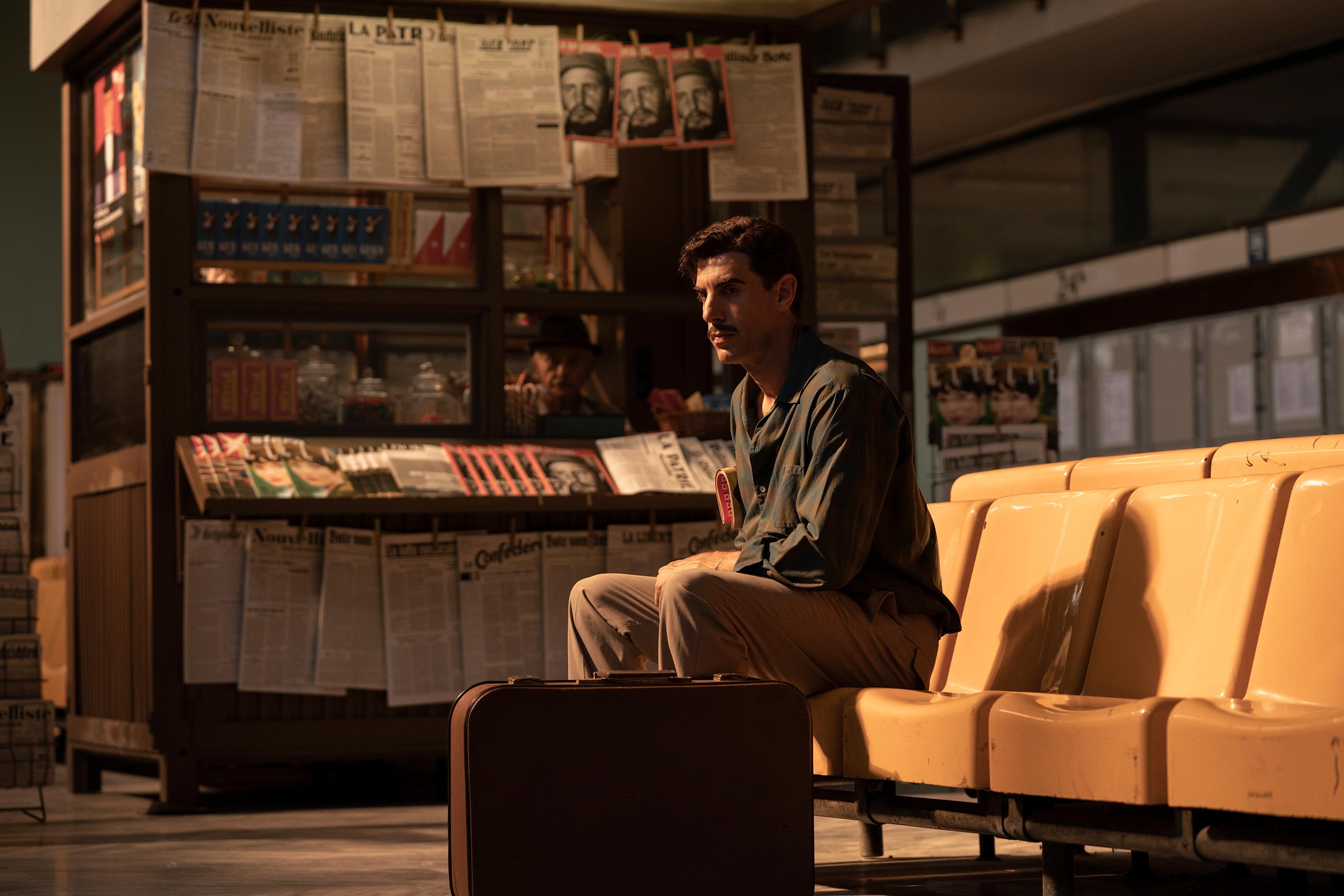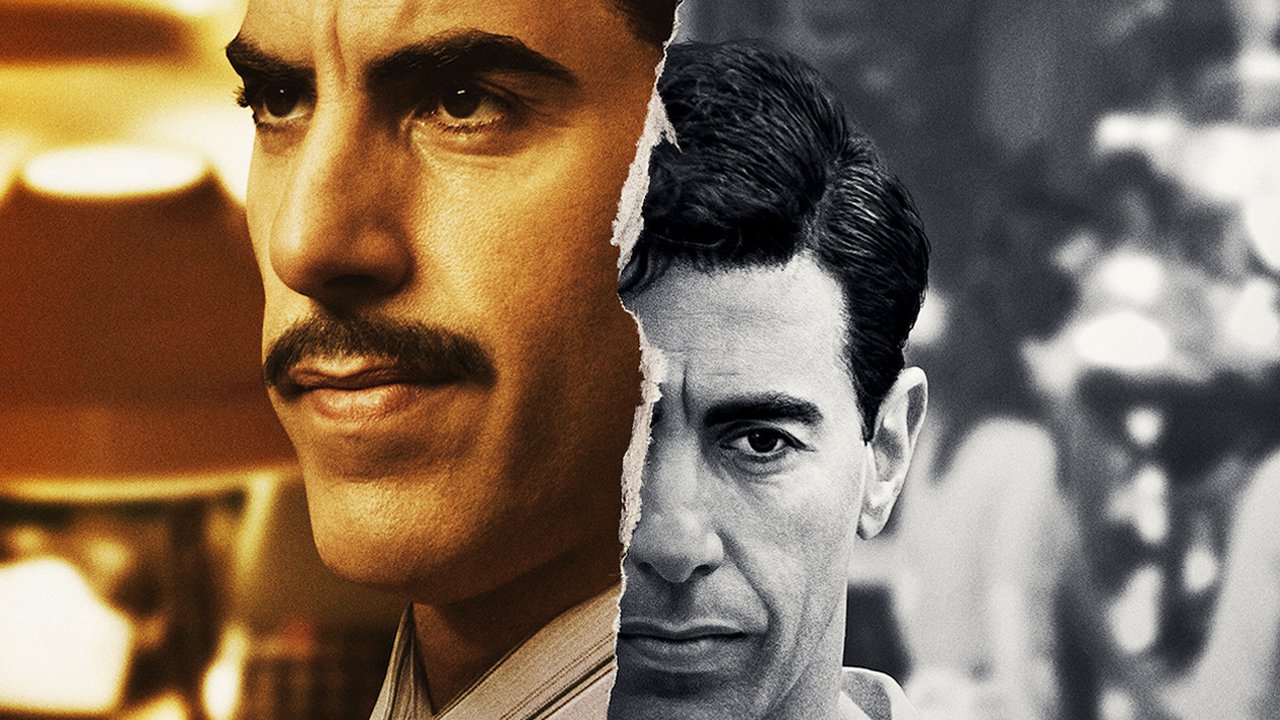Espionage is one of the most fascinating professions in the world. The mystery surrounding the job has allowed people to let their imagination run free about the lives of spies. The dangerous nature of their work and skill it takes to chameleon oneself according to the situation makes us wonder what they have that makes them so special. It is one of those things that the audience will never be disenchanted with because they will never truly get to see it in its true form. There will always be a clandestine tone to it, and the more stories come out about the daring exploits of secret agents around the world, the more interested people will be. Netflix’s ‘The Spy’ aims to bank on this fact. Created by Gideon Raff, who has by now proven that espionage stories are his thing, it follows the story of the spy who made a name for himself by undertaking a seemingly unachievable task. If you haven’t yet seen the show, head over to Netflix. SPOILERS AHEAD
Summary of the Plot

Israel and Syria’s conflict takes a sharp turn after the latter goes on a bombing streak across their border. A lot of civilians die as a result of this and the pressure is increased on the intelligence agency, Mossad, to take some action. The urgency is further elevated when they discover that the bombings are actually a ruse. The Syrians are using it as a distraction to keep the Israelis occupied while they smuggle heavy machinery to their secret bunkers. Because the Mossad has no undercover agent in Syria, they have no idea what this could be about. They need someone on the job and they need it fast.
Meanwhile, Eli Cohen has been living as mundane life as possible, and undoubtedly, he is not happy with it. He loves his wife, but for the rest of the things, he is rather morose. He finds small things in his job to build up excitement and waits for people to ask him about his adventurous time in Egypt while attending their parties. His plain exterior doesn’t allow anyone the imagination to see him in that world, and in his heart, he takes offence for that. He is better than what people think of him and he just needs one chance to prove that.
Coincidentally, a Mossad agent lands upon his previously rejected profile and after looking into his history, starts paying serious thought to him. He has his reservations about putting someone in a high-level situation as this and expresses his concerns to his superiors. But the country comes before anything and the country needs a spy. Cohen passes one test after another to prove himself worthy of the job. He finally has his chance to shine and is not ready to let himself down. He knows that he can’t share his work with anyone. He hides it from his wife and the rest of his family is none the wiser. After training for six months and learning all the tricks of the trade, he finally puts on the uniform of his cover identity. As Kamel, he is a businessman who wants to return to his beloved motherland, Syria, and do everything in his power to bring it back to its previous glory. His enthusiasm catches the attention of Syrian officials and he makes a lot of friends in the highest of places.
After proving his worth in Argentina, he moves to Damascus where his impeccable work makes things easier for Mossad. This also means that he has to spend more time as Kamel than as Eli, and it soon begins to show the adverse effects on his psyche. Nadia, his wife, has to grapple with his long absences, during which she gives birth to two of their children. He tells her that his work is to buy stuff for the Ministry of Defence, but it doesn’t take time for her to decipher that he is somewhere else doing something dangerous. As Eli begins to gain a stronghold in Damascus, he also makes himself more vulnerable. Syria goes through a number of changes during this time, and his survival leans more and more on his luck than his skills.
The Spy Ending: What Happened to Eli Cohen?

Is it really possible for someone to infiltrate an enemy nation to such extent that they become or are at least offered the post of a high ranking official in their government? Is this the testimony of their brilliance or the proof of their enemy’s stupidity? Eli Cohen’s story is the real-life version of James Bond’s most precarious missions. To be honest, the account is so outstanding that it is almost unbelievable. No one is THAT good! Syrians might have been caught up in the same belief, which is why they couldn’t see what was right in front of them. But not all of them were so careless.
While Amin al-Hafiz befriended and trusted Cohen with every fibre of his being, his security head had a very different perception of his new friend. From the very beginning, he had been suspicious of him, but couldn’t gather enough evidence to prove anything. By the time their paths crossed again in Syria, Cohen had already built up a good support system. Both al-Hafiz and Ahmed Suedani recognised his importance and used his friendship to organize the coup they had been planning for so long. Cohen jumped at the opportunity and secured more points in the good books of al-Hafiz. His influence grew to such point that al-Hafiz offered him the post of Deputy Minister of Defence. But by this time, the job had begun to take a toll on his personal life and mental health.
He had spent so much time undercover that he had forgotten what it was like to live as his normal self. The interval between each visit increased considerably, which meant he was more Kamel now than Eli. Back home, Nadia had become suspicious of his new line of work and was worried about his safety. The change in his behaviour would become more pronounced with each visit and she could feel him slipping from her grasp. When the government came to know about the opportunity to place an agent so high in the Syrian government, they didn’t want to let go of this once in a lifetime opportunity. But by then, Cohen had had enough. While we don’t see it in the show, he had expressed his desire to not return to Syria. On the insistence of the agency, he was asked to go back one last time, and he had promised the same thing to Nadia. But he had flown too close to the sun by then.
With al-Hafiz in charge, Suedani became even more suspicious of the people around them and now had the power to eradicate them too. The arrest of American agents made them even more alert and a new plan was put into action. Backed by Soviet tech, they decided to scout the neighbourhoods looking for foreign signals while experiencing radio silence. Cohen’s routine of sending the messages at the same time every day became his Achilles’ heel. He was caught while transmitting a message, which left no room for any explanations to get out of the situation. He was interrogated and tortured for many days. During this period, his wife and family organised a campaign demanding clemency. Several countries came out in his support and asked the Syrian government to let him go.
Had it been any other spy, they might have thought about making a deal in exchange. But Cohen was no common spy. His achievements were severe black spots on the reputation of al-Hafiz and Syria. When the newspapers around the world got a whiff of the story, they ate it up. While talking about the heroic work of Cohen, they also mocked the Syrians, which further angered them. By now, Nadia had no doubt that they would kill him. On May 18, 1965, Eli Cohen was publicly hanged in Marjeh Square. His body was on display for six hours, after which he was buried someplace, the location of which is unknown to this date. The Cohen family implored the Syrian government to return his remains, but nothing happened. It has been about 55 years now and Nadia is still fighting to get her husband back. It was reported a while ago that the Mossad had attempted to recover his body a long time ago, which is why the Syrians placed him somewhere else. A lot of other stories have surfaced on the matter, including the most recent one which states that the Russians managed to get him out. All of these stories have been denied by the Israeli government.
The Legacy of the Spy
Four years of Eli Cohen’s service continued to prove fruitful for Israel even after his death. It debased the reputation of Syrian intelligence, who have maintained that Cohen’s work has been wildly exaggerated. Al-Hafiz has denied any relations with him, stating that before returning to Syria, he had been in Russia. He is pretty stoic about his stance on the spy and says that the Mossad did this to fantasize their own reputation. But Israel has not minimised Cohen’s service to the country. Israel and Syria have been in conflict for a very long and still continue to be. By far, they have indulged in three wars: the 1948 Arab-Israeli War, the 1967 Six-Day War and the 1973 Yom Kippur War. The outcomes have always been a mixed bag, but Israel particularly enjoys the victory of the 1967 war. Remember the trees that Cohen planted on his tour to Golan Heights? The Israeli army used it as the markers to identify the location of Syrian fortifications. The sketches and images sent by him during his work also became important factors in securing victory in future conflicts.
Since then, Cohen has received the status of a national hero. He has places and streets named after him, and a memorial stone in his name was erected in the Garden of Missing Soldiers in Jerusalem. A couple of years back, his wristwatch was recovered and is on display at the Mossad headquarters. His tales have become the source of inspiration for future spies. Through his work, he single-handedly managed to change the course of Israeli history and who knows how far he would have gone had a single mistake not brought everything down for him.
Read More in Explainers: Money Heist season 2 | The A List


You must be logged in to post a comment.